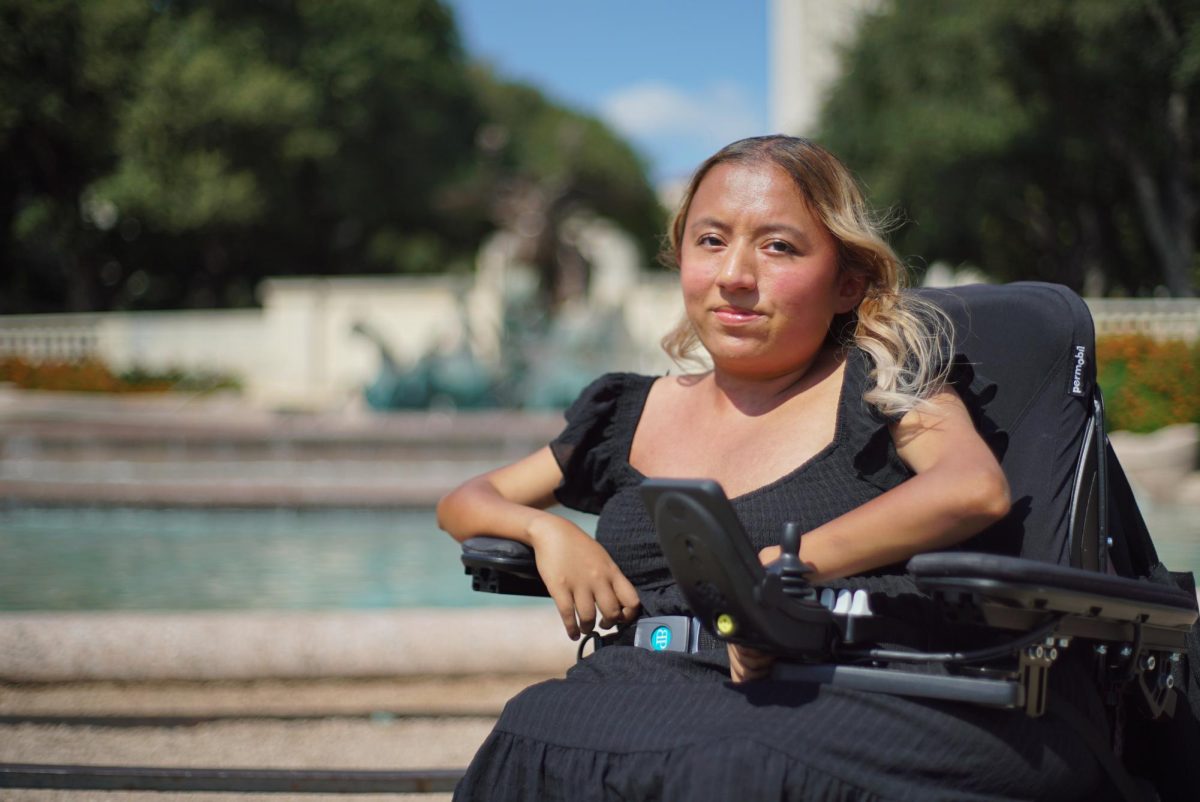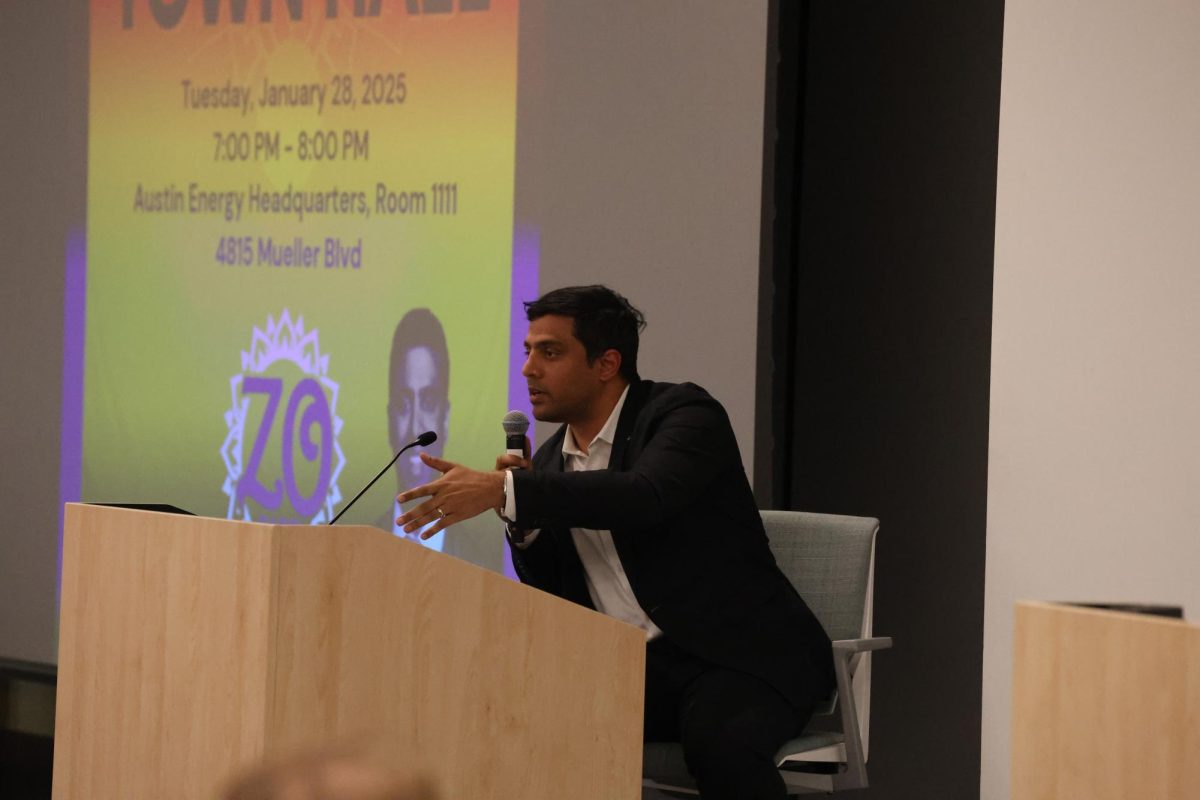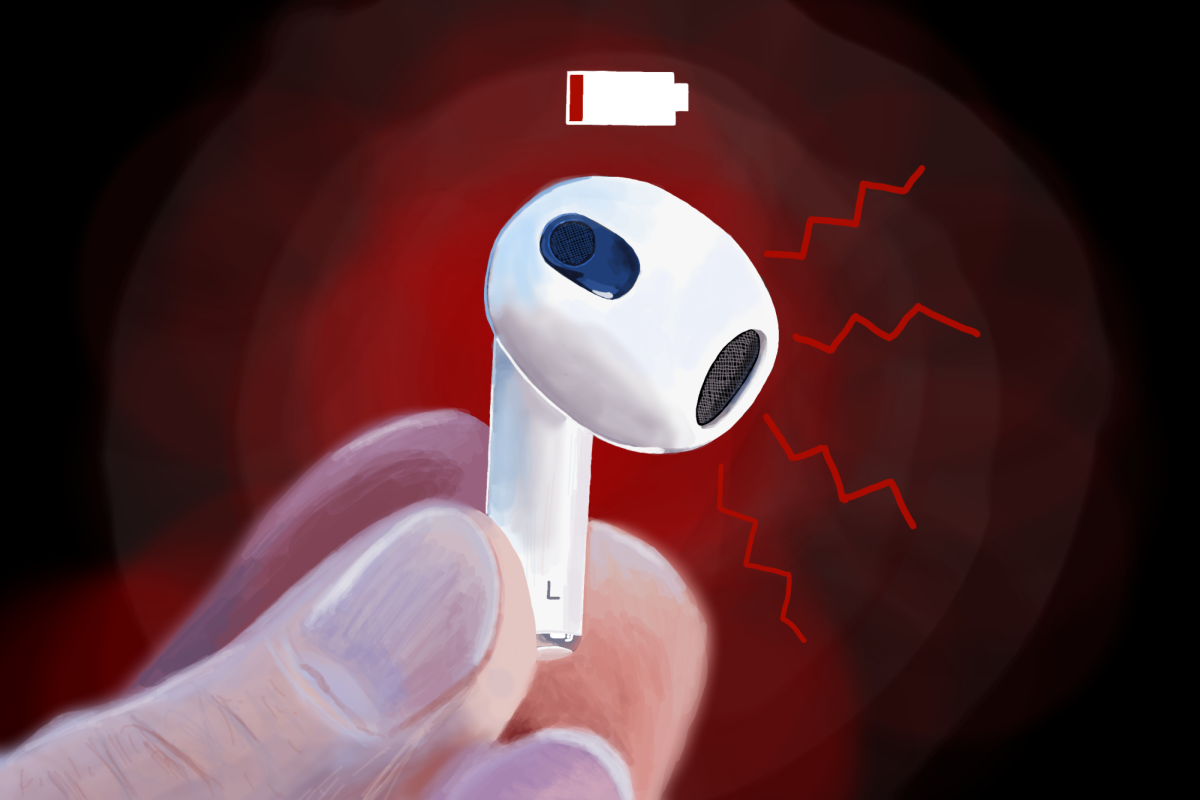Hormonal birth control revolutionized fertility control, but also has significant effects on women’s physical and psychological processes, said a Texas Christian University psychologist and professor on Nov. 15 as part of the Hot Science – Cool Talks initiative hosted by the UT Environmental Science Institute.
Sarah Hill spoke first about her own experience with hormonal birth control and how she felt significantly more energetic after going off the birth control pill. She disregarded the change until attending a research conference years later, where she learned that women who are using birth control don’t release stress hormones.
“Hormones affect the way that we think and feel and experience the world; they’re a part of who we are,” Hill said. “So of course, I felt different when I went off hormonal birth control. The pill changes this really important stuff that goes on in the brain. The pill, it changes everything.”
Angelina DeRose, STEM community engagement program coordinator at the Environmental Science Institute, works with the Institute to promote balanced conversations based on science. Having read Hill’s book, DeRose said conversations about the unintentional effects of birth control are important.
“When you start birth control, you get this long list of side effects, (and) that’s just part of the territory,” DeRose said. “Chemical messengers in birth control affect every single part of your body. They can’t just affect whether or not you’re able to get pregnant.”
The two main sex hormones are estrogen and progesterone — estrogen makes conceiving from sex possible, while progesterone prevents conception from sex. In her presentation, Hill said naturally cycling women go between these two different hormonal states, while hormone production is shut down for women on hormonal birth control.
“It essentially sends a message to your brain that tells your brain not to stimulate your ovaries to produce eggs, and instead you take a pill or get an (implant) that’s giving a hormonal message,” Hill said. “Your body is receiving the same daily hormonal message every day.”
Hill said that women will sometimes experience an increase in sexual desire when they get their period, and birth control makes that cycle even. So, with a birth control pill that creates high levels of synthetic progesterone and low levels of estrogen, sexual desire is low.
“The hormonal package that’s created by the pill is not necessarily right for sexual desire,” Hill said.
In all women, the risk of being diagnosed with depression after stopping hormonal birth control increases by at least 40%, Hill said. In women aged 15 to 19 years old, the risk is increased by at least 170% and up to 220% depending on the method of hormonal birth control. Similar patterns have also been observed for suicide risk, including a doubled risk for attempted and tripled risk for successful attempts.
“The 15 to 19-year-old age range seems to be the age range at which women are most vulnerable for the psychological side effects related to hormonal birth control,” Hill said. “This is something that should probably be in consideration when young girls are being prescribed hormonal birth control with things like acne and cramps.”
DeRose said the significant impacts of hormonal birth control on behavior and perception make understanding the tool vital before prescription.
“If I start taking hormonal birth control, I might experience the world completely differently,” DeRose said. “I would want to know if I was going to take hormonal oral birth control or an IUD. I think it’s a useful tool, and women deserve to know more about how it affects their bodies.”














